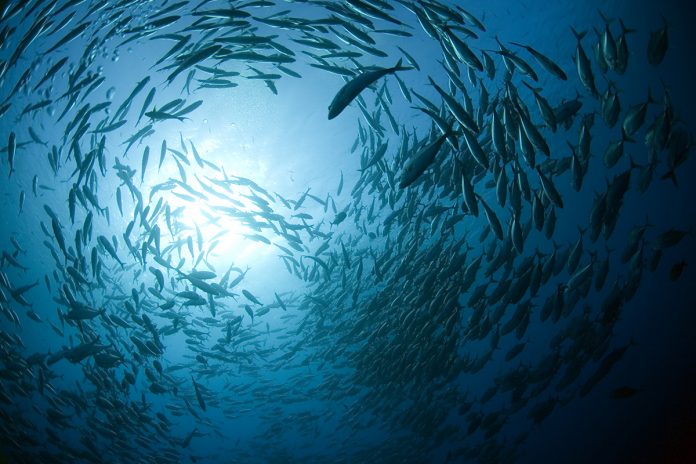Dr María Ángeles Esteban’s group is searching for new biomarkers involved in fish immunity and welfare in farmed environments
The Fish Immune System Group is a research group that belongs to the University of Murcia. The group leader is Dr Esteban. They investigate the immune system of fish in species of interest for Mediterranean aquaculture. Farmed fish species are teleosts, a group that includes more than 40% of vertebrates, and shows remarkable diversity in immune system structure and function.
Aquaculture is an important source of food, nutrition (special interest is in the fish proteins and micronutrients), income and livelihoods for hundreds of millions of people around the world. At present, aquaculture provides half of all fish for human consumption.
Aquaculture consists of farming finfish, shellfish and aquatic plants and it is one of the world’s fastest-growing food sectors. In Europe, aquaculture directly employs more than 85,000 people, mainly in SMEs or micro-enterprises in coastal and rural areas. Furthermore, in the EU aquaculture is renowned for its high quality, sustainability and consumer protection standards.
According to the FAO, it is expected that aquaculture needs to increase 40% in the next 10 years reaching a production of around 30 million of tonnes of products in 2015. To be able of continuing increasing at the expected levels it is important to improve some aspects related to the aquaculture production practices developed at present. Among them are of special interest to control the pollution of the farms to avoid undesired negative impacts (such as environmental impacts, use of chemicals) or to diminish the levels of harmful substances in the aquatic products.
In other words, soon this important activity must be sustainable and has the necessity of the adoption of fish welfare-oriented therapeutic and prophylactic strategies. In this sense, the Dr Esteban group focuses on the study of the fish immune system since different points of view.
Techniques
Firstly, the team is always tuning techniques or developing new experimental approaches to expand existing knowledge about the immune system of these animals, with concern in the identification of new biomarkers of disease diagnostic. Fish are considered to be a key model in comparative immunology studies because it is a representative population of lower vertebrates considered as an essential link to early vertebrate evolution. Furthermore, the fish immune system is adapted to the aquatic environment and to the fact that fish are cold-blooded vertebrates.
Secondly, of special interest is the fact of working on the selection of varied natural products (such as microalgae, yeasts, medicinal plants or extracts of plants, by-products from different food companies) which, when administered in diet to fish, either as ingredients or simply as additives, can exert beneficial effects on them.
In this research, we focus our interest in the stimulation of fish immune status but most of the times, other beneficial effects for example growth promotion, antioxidant activity, improved disease resistance are also found.
At present, the use of natural substances and innocuous compounds to improve farmed fish immune system has potential in aquaculture as an alternative to antibiotics and immunoprophylactic. Moreover, these natural immunostimulants are more environmentally friendly since they are more biodegradable than synthetic molecules and they do not produce drug resistance.
Please note: this is a commercial profile
María Ángeles Esteban
Fish Immune System Group
Department of Cell Biology & Histology
Faculty of Biology
University of Murcia











